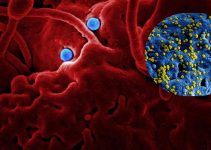Sinusitis is the infection of the nasal cavities. It is generally caused by a virus, although it can also be caused by bacteria or rarely fungi.
In addition, allergies, nasal polyps, and tooth infections can cause sinus symptoms.
Chronic vs. Acute
According to the American Academy of Otolaryngology, acute sinusitis lasts less than 4 weeks and is most commonly caused by a cold or other respiratory illnesses.
Chronic sinusitis lasts more than 12 weeks or is recurrent. The main symptoms are facial pain, infected nasal discharge, and congestion.
Pain in Your Sinuses
People have different sinuses above and below the eyes and behind the nose. If you have sinusitis, any of them can hurt.
In addition, the inflammation and swelling cause the sinuses to ache and cause a sensation of pressure in the affected area. This can lead to headaches.
Nasal Discharge
Sinusitis causes the need to constantly blow your nose due to nasal discharge.
This discharge can even go through the nose and down the throat.
This is called postnasal drip and causes a cough with mucus, mainly in the morning when you wake up or at night when you go to bed.
Nasal Congestion
The infection can cause inflammation of the nasal passages, causing difficulties breathing through the nose.
In addition, this can cause you not to smell or taste normally.
Sinus Headaches
Sinusitis can also cause headaches.
They are generally worse in the morning because fluids collect overnight.
It can also worsen if you drastically change the barometric pressure in your environment.
Throat Irritation And Cough
As the discharge from the sinuses drains into the throat, it can irritate.
This usually leads to a persistent cough which can be worse when you are sleeping or just waking up. In this way, you can make it difficult to sleep.
Sore Throat And Hoarse Voice
Postnasal drips can cause a sore throat. Although it may start as a tickle, it can worsen over time.
When the infection lasts for more than 4 weeks, the mucus can irritate and inflame the throat, causing pain and a hoarse voice.
When to See Your Doctor For Sinus Infection
If you have a fever, congestion, nasal discharge, or facial pain that lasts more than ten days, you must visit a doctor.
In general, fever is not a symptom of sinusitis, but it can happen.
If you have a chronic infection, this may be related to another underlying disease. If so, you will need special treatment.
Treating Sinus Infections
Over-The-Counter Medications
To relieve sinus symptoms in the short term, you can use a nasal decongestant spray such as oxymetazoline.
However, you should use this medication for no more than three days since; otherwise, a rebound effect can be seen.
There are nasal steroid sprays that can help relieve symptoms without the rebound effect—for example, Mometasone, Triamcinolone, or Flucatisone.
You can also use over-the-counter medications that contain antihistamines or decongestants. Among them: are Allegra, Sudafed, Claritin, and Zyrtec.
It is not recommended to use decongestants in people with hypertension, glaucoma, prostate problems, or insomnia.
Nasal Irrigation
Nasal irrigation can help treat sinusitis, allergic rhinitis, and seasonal allergies.
You can make homemade nasal solutions—Mix 1 cup of warm water with 1/2 tablespoon of salt and 1/2 tablespoon of baking soda. Then apply to your nose using a nasal sprayer.
Herbal Treatments
According to studies, there are herbal treatments that help treat sinus symptoms.
Among them are GeloMytrol (oral capsules of essential oils) and Sinupret (oral mixture of elderflower, sorrel, cowslip, verbena, and gentian root).
Antibiotics
Antibiotics are used to treat only acute sinusitis that other methods have not cured.
You should consult your doctor before resorting to antibiotics to see if it is the right option.
Can Sinus Infections Be Prevented?
In principle, you have to avoid things that irritate the nose to prevent sinusitis, such as cigarette smoke.
In addition, it is essential to wash your hands frequently to prevent the sinuses from being infected by viruses and bacteria that are on your hands.
Some allergies can cause persistent sinus symptoms. In that case, you should go to an allergy specialist to tell you what is the proper treatment for you.
Sinus Infections in Children
These are the main symptoms of sinusitis in children:
- Earache.
- A cold that lasts longer than a week.
- Headache.
- Swelling around the eyes
- Post-nasal drip (which can cause nausea, vomiting, coughing, and bad breath).
Giving over-the-counter medications to children is not recommended. In this way, it is always better to go to the doctor to indicate the appropriate treatment.
In general, children do not need antibiotics to cure sinusitis.
Sinus Infection Outlook and Recovery
With proper treatment, acute sinusitis clears up within a week or two. In contrast, chronic sinusitis requires the attention of a specialist to diagnose the cause of constant infections.
To alleviate symptoms and shorten them, it is advisable to practice good hygiene and keep the sinuses clean and hydrated.





